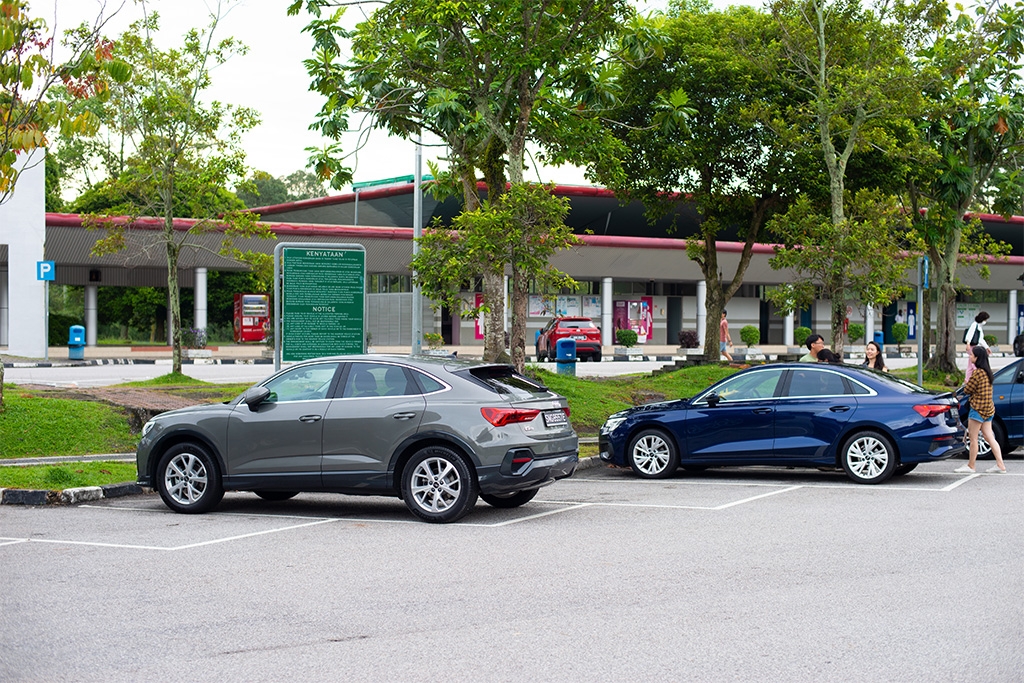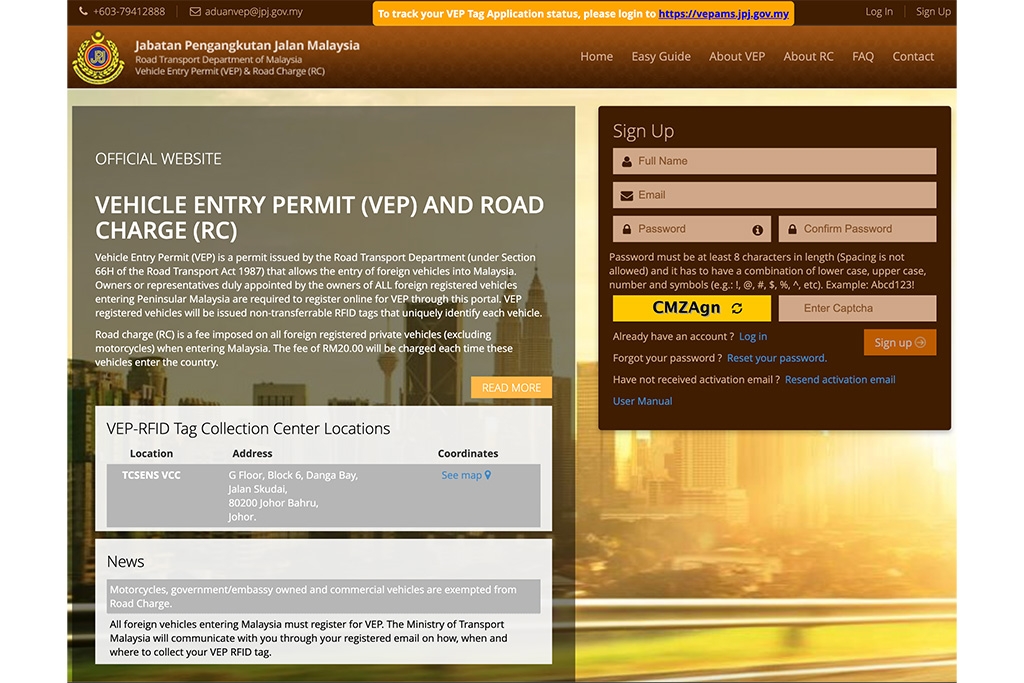VEP required for foreign cars entering Malaysia from 1 Oct
28 May 2024|37,473 views
Years of delays have likely pushed Malaysia's Vehicle Entry Permit (VEP) requirement for foreign vehicles to the back of the minds of Singaporean drivers.
But all that is likely to change now with an update by Malaysia's Transport Ministry: That it will resume enforcement of the VEP, come 1 October 2024. The news was announced by Malaysia's Transport Minister, Anthony Loke, on Tuesday afternoon (28 May 2024).
As a quick refresher, Malaysia already runs a 'VEP system' of sorts, in the form of a Road Charge (RC) for Singapore-registered cars entering the country. The RC came into effect on 1 November 2016, and has required that drivers of Singapore-registered cars pay RM20 (approximately $5.80) whenever they cross into Malaysia via the Johor-Singapore Causeway or Malaysia-Singapore Second Link.
This latest update, however, refers specifically to the permit issued by Malaysia's Road Transport Department that regulates the entry of foreign vehicles into Malaysia. As per Section 66H of Malaysia's Road Transport Act 1987, it is mandatory that all foreign-registered vehicles entering Peninsular Malaysia be registered for the VEP.
The VEP was first announced in 2017, and was supposed to be fully enforced on 1 October 2019. On the day itself, however, the Malaysian Ministry of Transport announced that it was halting enforcement as a result of teething problems at the border - before following up just over a week later with the news that the VEP would be delayed by at least a year due to issues relating to the instalment of the VEP-Radio Frequency Identification (RFID) tags.
For Singapore drivers who are new to the system, registration of the VEP can be done via the Department's online portal, at https://vep.jpj.gov.my, following which verified vehicles will be issued with said VEP-RFID tags - which are unique and non-transferrable - for identification. An initial processing fee will cost drivers RM10 (approximately $2.90). Drivers can also use the portal to track their VEP application status.
Upon receiving confirmation of successful registration, drivers can then proceed on to designated counters in Johor Bahru with their confirmation slips and "other pertinent documents" to collect their VEP-RFID tags, which will be valid for five years. The tags can be installed either on the upper portion of a car's windscreen, or on its left headlight - although the recommended position varies based on model.
This latest update gives Singaporean drivers approximately four months to register their cars and install their tags, before enforcement kicks in on 1 October 2024. Motorcycles, which are exempt from the RC, are also expected to register for the VEP - although how exactly enforcement will take shape is unclear, per a statement by the Malaysian authorities which notes that "the installation of VEP-RFID tags... will take place at a later date which will be informed through an e-mail notification".
Years of delays have likely pushed Malaysia's Vehicle Entry Permit (VEP) requirement for foreign vehicles to the back of the minds of Singaporean drivers.
But all that is likely to change now with an update by Malaysia's Transport Ministry: That it will resume enforcement of the VEP, come 1 October 2024. The news was announced by Malaysia's Transport Minister, Anthony Loke, on Tuesday afternoon (28 May 2024).
As a quick refresher, Malaysia already runs a 'VEP system' of sorts, in the form of a Road Charge (RC) for Singapore-registered cars entering the country. The RC came into effect on 1 November 2016, and has required that drivers of Singapore-registered cars pay RM20 (approximately $5.80) whenever they cross into Malaysia via the Johor-Singapore Causeway or Malaysia-Singapore Second Link.
This latest update, however, refers specifically to the permit issued by Malaysia's Road Transport Department that regulates the entry of foreign vehicles into Malaysia. As per Section 66H of Malaysia's Road Transport Act 1987, it is mandatory that all foreign-registered vehicles entering Peninsular Malaysia be registered for the VEP.
The VEP was first announced in 2017, and was supposed to be fully enforced on 1 October 2019. On the day itself, however, the Malaysian Ministry of Transport announced that it was halting enforcement as a result of teething problems at the border - before following up just over a week later with the news that the VEP would be delayed by at least a year due to issues relating to the instalment of the VEP-Radio Frequency Identification (RFID) tags.
For Singapore drivers who are new to the system, registration of the VEP can be done via the Department's online portal, at https://vep.jpj.gov.my, following which verified vehicles will be issued with said VEP-RFID tags - which are unique and non-transferrable - for identification. An initial processing fee will cost drivers RM10 (approximately $2.90). Drivers can also use the portal to track their VEP application status.
Upon receiving confirmation of successful registration, drivers can then proceed on to designated counters in Johor Bahru with their confirmation slips and "other pertinent documents" to collect their VEP-RFID tags, which will be valid for five years. The tags can be installed either on the upper portion of a car's windscreen, or on its left headlight - although the recommended position varies based on model.
This latest update gives Singaporean drivers approximately four months to register their cars and install their tags, before enforcement kicks in on 1 October 2024. Motorcycles, which are exempt from the RC, are also expected to register for the VEP - although how exactly enforcement will take shape is unclear, per a statement by the Malaysian authorities which notes that "the installation of VEP-RFID tags... will take place at a later date which will be informed through an e-mail notification".
Latest COE Prices
February 2026 | 1st BIDDING
NEXT TENDER: 20 Feb 2026
CAT A$106,320
CAT B$110,890
CAT C$74,801
CAT E$116,000
View Full Results Thank You For Your Subscription.





















